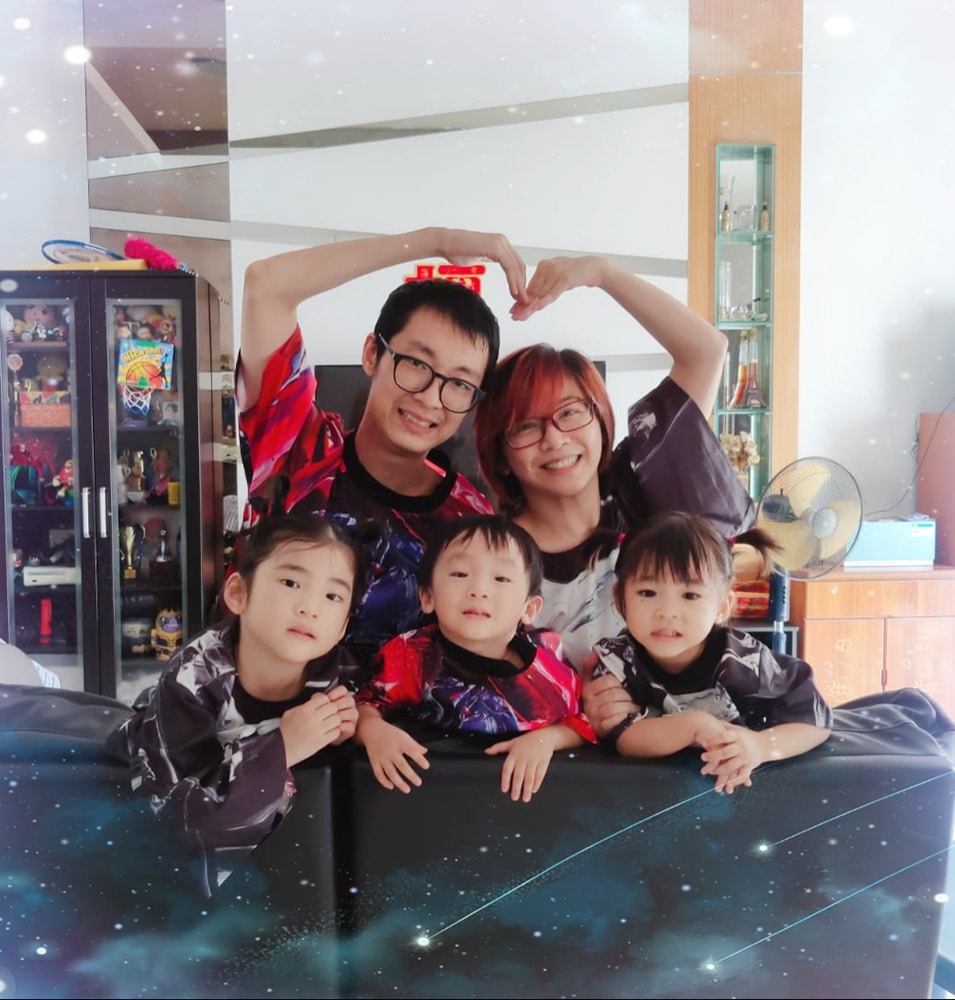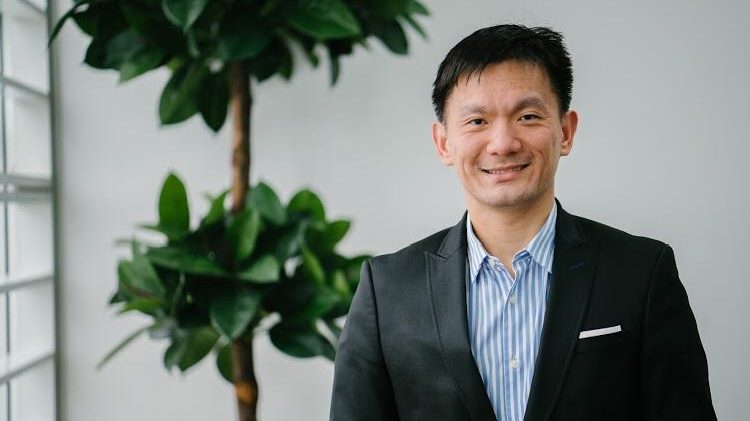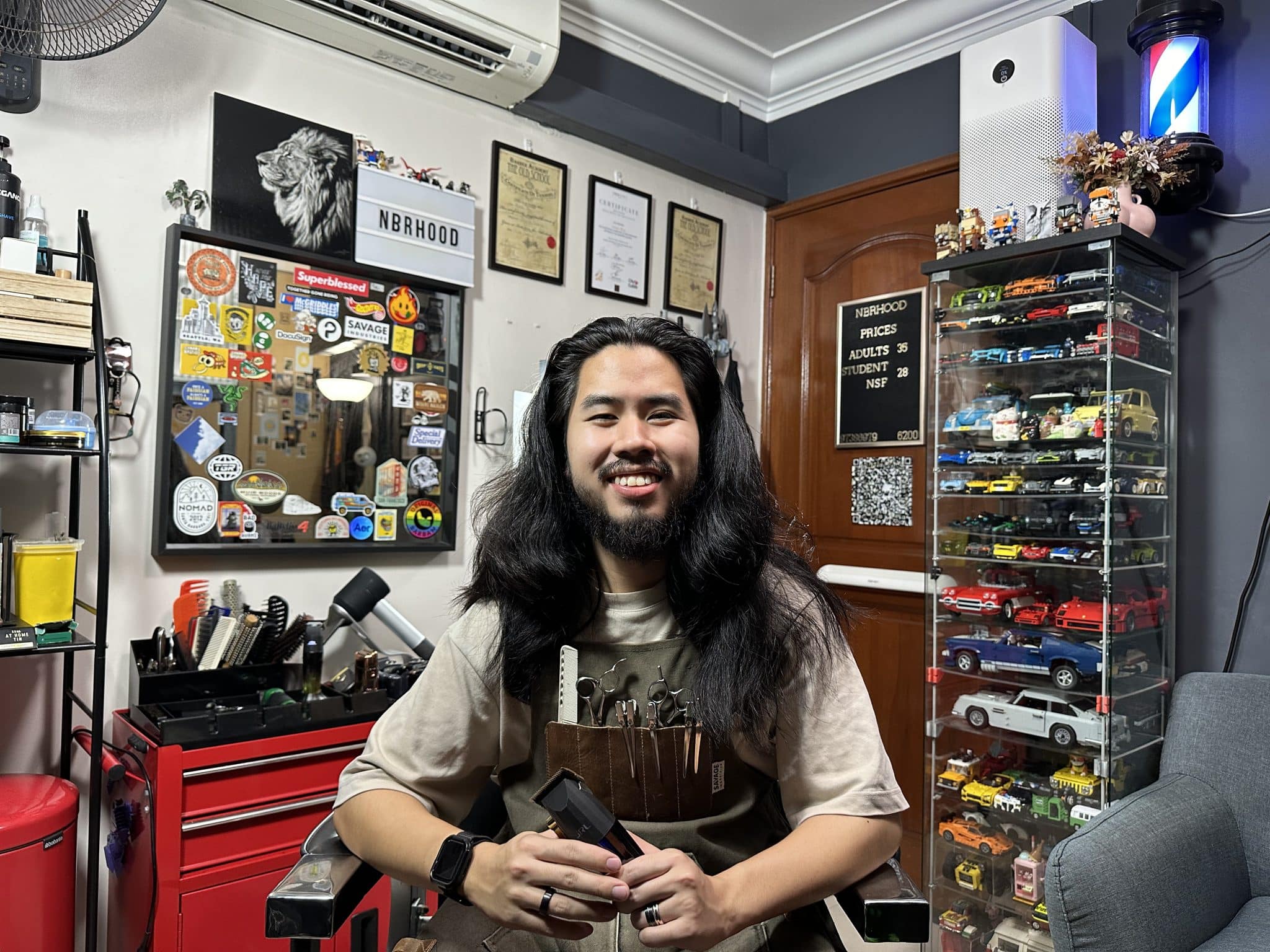“It was out of our control, and God came through for us”: Couple who both had COVID-19 on the birth of their miracle baby
Priscilla Goy // May 9, 2020, 3:13 am
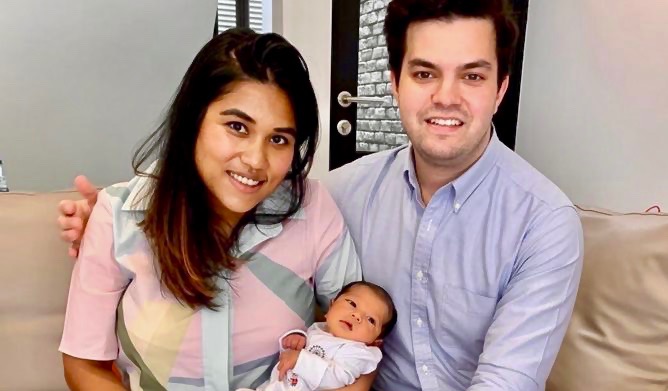
Natasha and Pelé Ling named their baby Boaz because “it’s a name that not many people come across. So it’s an opportunity to talk to people about the Bible." All photos by Pelé Ling.
Little Boaz might just be the most famous baby in Singapore right now.
Born on April 26, blissfully unaware of the flurry of media attention, Boaz is believed to be the first baby born in Singapore to parents with COVID-19, and possibly the first to be born here with immunity to the coronavirus.
“If you take COVID-19 out of it, pregnancy itself is already a huge exercise of trusting God.”
When first-time mother Mrs Natasha Ling tested positive for the coronavirus in her 36th week of pregnancy in March, just a day after her husband tested positive, she had reason to be anxious.
Would the virus affect the baby, and if so, how? What happens if her baby is born while she was still positive? Would she need to practise “safe distancing” from her newborn, to avoid having him infected?
Natasha and her husband Pelé have recovered, about two weeks since they arrived in Singapore on March 19 from London. Boaz was born on April 26, weighing 3.735kg.
Says Pelé, 28: “If you take COVID-19 out of it, pregnancy itself is already a huge exercise of trusting God. You can go for tests and scans, but anything can change, at any moment.
“Then you add COVID-19 on top of it, and everything becomes more stressful.”
Flying home … to isolation
Natasha, a Singaporean speech and language therapist, and her British church worker husband, Pelé, live in London. Natasha, 29, had pursued her university studies in London and met Pelé in All Souls Church, where he serves as a creative ministries worker. He also leads the church’s Free English Classes ministry, teaching English to over 100 people each week.
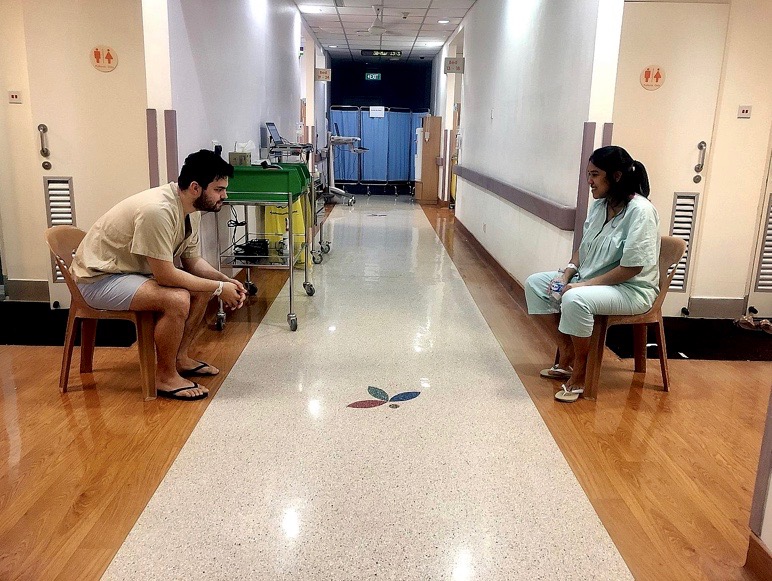
So near, yet so far. At NUH, Natasha and Pelé were warded opposite each other and were not allowed to cross the 2m-wide corridor separating their wards.
The couple lived in Singapore for about 2½ years, before moving back to the UK.
They had planned to deliver their child in London, but the virus situation was worsening in the UK, which now has over 200,000 infections and the world’s second-highest death toll of over 30,000.
As the first heavily pregnant woman in Singapore to have the virus, doctors put her in isolation as a precaution.
With the travel restrictions, Natasha’s mother could not fly to London to provide moral support. So on March 19, two hours before Natasha entered her 36th week of pregnancy when she would have been barred from flying, she and Pelé boarded a 12-hour Singapore Airlines flight to Singapore.
On the night they arrived, Pelé had a slight fever. Two days later, he was told he tested positive. Natasha got herself tested and received the same bad news the next day. They spent a few days in separate hospitals as the National Centre for Infectious Diseases (NCID), where Pelé was warded, did not have maternity facilities.
Natasha was sent to the National University Hospital (NUH) and, as the first heavily pregnant woman in Singapore to have the virus, doctors put her in isolation for three days as a precaution.
“That was a really difficult time,” Natasha, 29, told Salt&Light. “When I’m left alone with my thoughts, it’s generally not very healthy.
“When I’m with Pelé, he can tell me, ‘You’re being silly now. Don’t think about the worst-case scenario.’ But when I was on my own, I found it difficult to keep my thoughts in check.”
After a few days, Pelé was transferred to NUH and eventually, he and his wife were in opposite wards, with a 2m-wide corridor in between.
“We clarified multiple times. ‘Can Natasha hold the baby when he’s born?’ They said no.”
As days passed and medical professionals prepared for the scenario in which the baby would be born while Natasha was still positive, both parents were in tears over the thought of being separated from each other during this milestone.
Pelé is the more optimistic of the couple, but he had worries too. “What happens if the baby has the coronavirus and is struggling to breathe? What happens if that happens and I’m stuck in this room and Natasha is on her own?”
He says: “The hospital staff did a rehearsal, with 10 healthcare professionals in PPE (personal protective equipment).
“But the one person who could be there to hold Natasha’s hand and say, ‘This is going to be ok, I’ll be praying with you’ – that’s me – I was not going to be allowed to be there. That was really upsetting.”
For Natasha, if she gave birth while testing positive, she and her baby would be separated immediately.
Pelé says: “We clarified multiple times. ‘Can Natasha hold the baby when he’s born?’ They said no.”
This is to avoid contact and the baby getting infected. The baby would have to test negative for seven days before she could hold him.
Waiting and worrying
With time on their hands, they found themselves often watching the clock, constantly waiting, wondering when they would test negative.
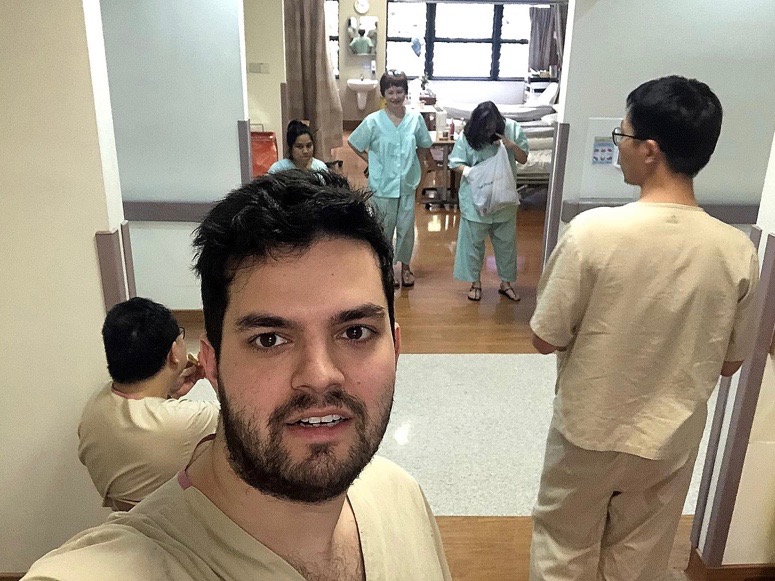
Able to see his wife (seated opposite) but not to be by her side, Pelé said what got him through the difficult days were the texts and prayers of encouragement from other Christians.
Pelé confessed in a video that he filmed of himself, as part of a “Daily Bible Thought” series by his church: “While I’ve been here (in hospital), I’ve been feeling unwell, alone, and really unmotivated to read my Bible.”
“People may say I seem to be the ‘perfect Christian package’, but actually I was finding it difficult.”
He told Salt & Light that this could have been due to boredom and tiredness; his mind was also consumed by various concerns. As a church worker, he was used to routines such as attending meetings which almost always started and ended with prayer.
“I’ve been a Christian for as long as I can remember. I work for a church. And here I was, struggling to read the Bible,” he says ruefully. “People may say I seem to be the ‘perfect Christian package’, but actually I was finding it difficult.”
What got him through was the encouragement from other Christians, including people he did not know personally. He shared Hebrews 3:12-13 in the video and said he was encouraged by Christians who texted him to say that they were praying for him and sent him Bible passages.
Natasha was also encouraged by Bible passages such as Psalm 23.
He did a count – since he had a lot of time on his hands during his hospital stay – and estimates that about 500 people were praying for them. These include family and friends from Singapore and the UK, as well as their fellowship groups. The number could be higher, as their church has a congregation of about 2,000.
“My wonderful wife is a worrier, but she’s also a warrior. When the occasion calls for it, she gives her 100%.”
When Natasha was in hospital, she tried not to fret. She told The Sunday Times in an interview: “I was worried about getting worried because I was worried that if I worry, the baby would come sooner. My focus was on trying not to have the baby while testing positive.” Otherwise, mother and baby would be separated.
With the COVID-19 situation and many things out of her control, she learnt to trust God more.
“I didn’t know how long I’d be in the isolation room. I didn’t know if Pelé would be able to come to NUH and be with me. I didn’t know when the baby was going to come; there was nothing that I could do to stop the baby from coming. I didn’t know when I would test negative; there were other people in hospital for 30 days without symptoms,” she says.
“I learnt to trust God without knowing when the end would be. The main thing for me was to trust God today – right now, today. And then deal with tomorrow, tomorrow.”
Pelé adds: “My wonderful wife is a worrier, but she’s also a warrior. When the occasion calls for it, she gives her 100%.”
Counting down the days
Natasha and Pelé were declared virus-free after 10 and 11 days in hospital respectively, but their ordeal was not over.
Pelé estimates that about 500 people were praying for them.
Doctors told them that if she went into the labour in the next five days, the gynaecologists would proceed as if she was still positive, and mother and baby would be separated.
Five days passed and baby Boaz did not arrive. But their ordeal was still not over.
The expected due date of April 17 passed too, and the couple’s next concern was when the baby would finally be born.
One feat that Natasha accomplished as a “warrior”: Walking 6km daily for about two weeks, hoping to help the baby to arrive sooner. She also tried eating more spicy food and drinking coffee, in the hope that this would help to naturally induce labour.
“The main thing for me was to trust God today – right now, today. And then deal with tomorrow, tomorrow.”
“I felt frustrated at every hurdle,” she says.
But she was grateful that she had recovered after just 10 days in hospital, despite the potential added complications of being pregnant while having the virus.
Doctors induced labour about a week after the expected delivery date. She went into labour on a Friday morning and had regular contractions for 2½ days before Boaz was born on Sunday, April 26, at 4pm.
With both Natasha and Pelé now recovered from COVID-19, they were able to hold their newborn.
“Because the situation was so out of my control, it was so clear that God came through for me,” Natasha says.
Little Boaz
When asked why they named their child after the Bible character Boaz, Pelé says Boaz has been a favourite name for him ever since he was a teenager and studied the book of Ruth.
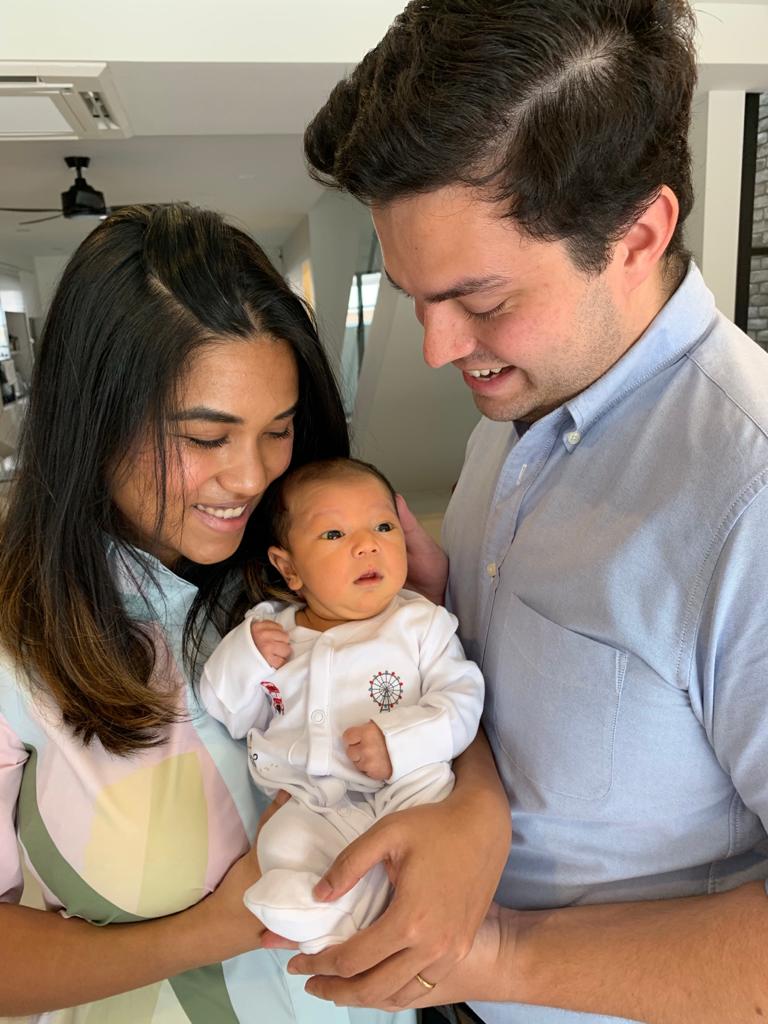
Evidence so far suggests that baby Boaz may be the first Singaporean born with COVID-19 antibodies.
“What a good guy and what a cool name,” he says with a grin.
Given that his own name is unique, he wanted his child to have a unique name too.
Already, little Boaz has had the opportunity to serve others. His parents agreed to let Boaz’s blood be taken for research.
“It’s a name that not many people come across. So it’s an opportunity to talk to people about the Bible, and how Boaz is a kinsman-redeemer who was pointing the way to Christ.
“And if you look at his character, he was a humble guy who served others and looked after the vulnerable.”
Already, little Boaz has had the opportunity to serve others. His parents agreed to let Boaz’s blood be taken for research.
The evidence so far suggests that he may be the first Singaporean born with COVID-19 antibodies.
“We will look back one day and tell him, ‘Look, ever since you were born, you have been helping others. Just like Boaz in the Bible, just like Jesus your Saviour. And so you should be proud to be named Boaz.’”
Business down by up to 97%, yet these restaurant owners are still giving to the community
We are an independent, non-profit organisation that relies on the generosity of our readers, such as yourself, to continue serving the kingdom. Every dollar donated goes directly back into our editorial coverage.
Would you consider partnering with us in our kingdom work by supporting us financially, either as a one-off donation, or a recurring pledge?
Support Salt&Light